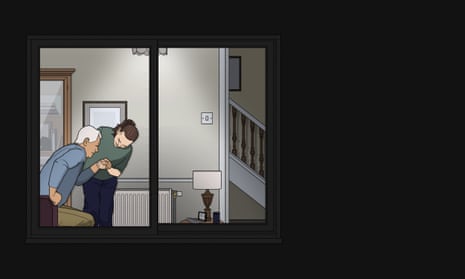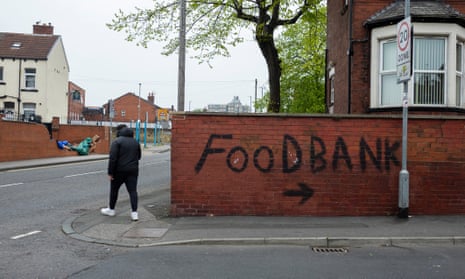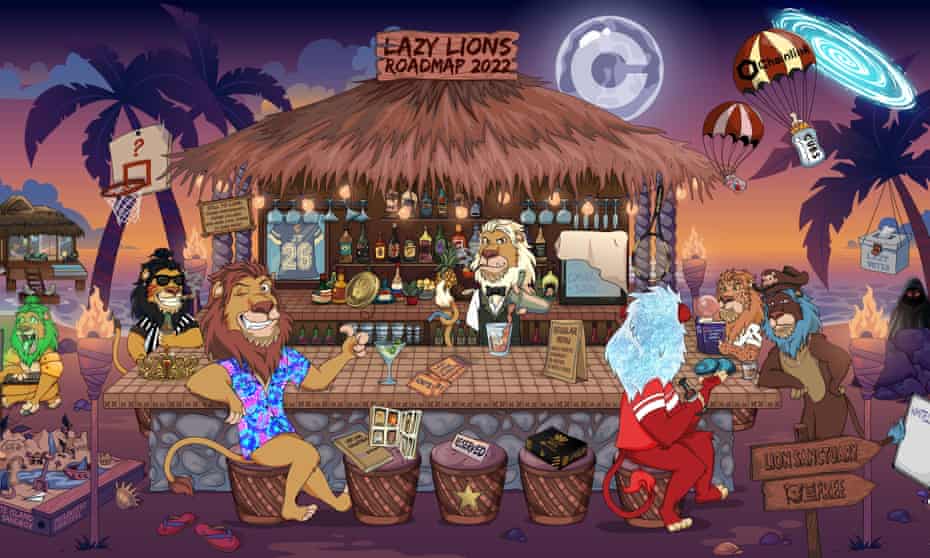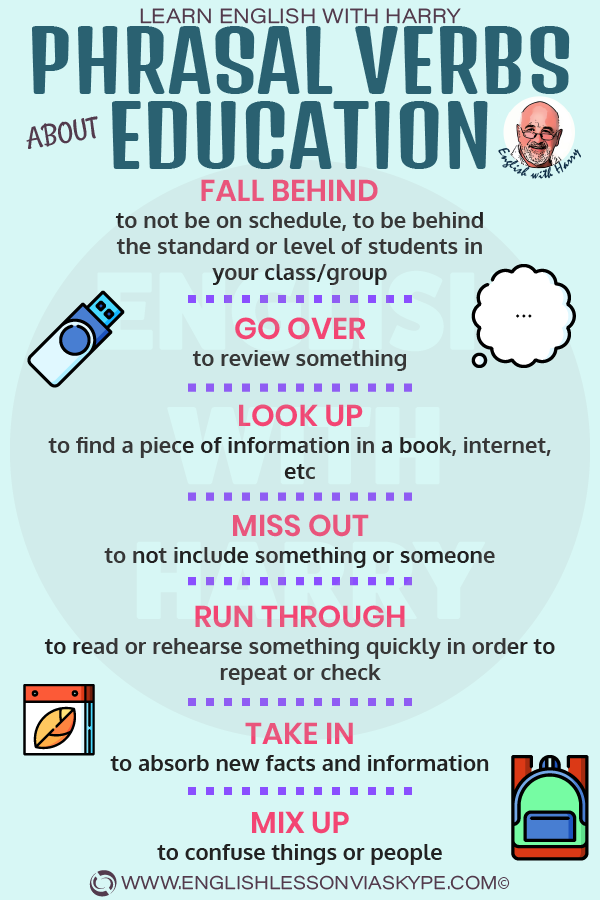Click here to read the article
Thursday, 22 December 2022
Tuesday, 20 December 2022
When Harry Met Meghan
Sunday, 18 December 2022
10 Best Countries to Move, Live, Work Abroad for Expats in 2022 | InterNations Expat Insider Survey
The top 10 cities to live and work abroad this year
click here to read the article
Read the article and answer the questions:
1. What are the benefits of living in Valencia for expats?
2. How many respondents took part in the survey?
3. Describe the advantages of living in Dubai.
4. What factors were taken into consideration while deciding which city is the best?
A private celebrity chef in Beverly Hills shares what her millionaire clients eat in a week
Sunday, 11 December 2022
Phrasal verbs: life, crime and society
Break in – force entry
The burglar broke in and stole cash and some jewelry.
Break out – escape from
The prisoners broke out of the prison during the fire.
Get away – escape
I managed to get away from the police as I was faster than the others.
Get away with – not be punished for sth
My boss got away with tax fraud by bribing a judge.
Give up/in – hand yourself in
The thief gave himself up to the police.
Let off – not punish/forgive
The police let us off in the end as we were not speeding too much.
Lock up – put in prison
We ought to lock up all corrupt politicians.
Look into– investigate
The police are looking into the incident.
Run away – flee/ escape by running
We all ran away after the protest so that we were not detained.
Tell off – shout at
The police told the children off.
Tell on – grass on
The witness told on his business partner to avoid further prosecution.
Tip off – give evidence against
The police were tipped off last night by a witness.
Make up 3 sentences with any of these phrasal verbs.
Why Belgium is now the cocaine capital of Europe
Golden Globes, Hobbled By Scandal, Set to Announce Noms
Monday, 5 December 2022
Participial Construction & Absolute Construction: Difference Explained
Every learner of English ought to know the difference between participial construction and absolute construction . These two constructions are the source of many an error often committed by English - users.
What is participial construction? It is a common type of sentence construction in English . It consists of a participial phrase or clause followed by the main clause. The participle may be present participle ( - ing) or past participle ( -ed or -en). Look at these sentences :
*Singing loudly, John entered the room .
*Tired from work, Kate went to bed early.
*Having read the book, she returned it to the library.
The first part of the sentence is called a participial phrase. The verbs in participial phrases are in the participle forms, present or past, and their subjects (not mentioned) are always the same as the subjects in the main clauses. So , remember that if you put a noun or pronoun other than the real subject (that is, subject of the participial phrase) at the beginning of the main clause, it may result in confusion ! Look at this sentence :
Walking in the grass, a snake bit her .
What impression do you get? Was the snake walking? If you re-write the sentence as
Walking in the grass, she was bitten by a snake
the sentence would make sense .
Now, let me discuss Absolute Construction. This type of sentence construction makes use of absolute phrases. What is an absolute phrase? Well, it is different from participial phrases in that it explicitly mentions the subject. The subject is never mentioned in participial phrases. For example, "being rich" is a participial phrase , "he being rich" is an absolute phrase. Another difference between participial construction and absolute construction is that the subjects of absolute phrases are always different from those of their main clauses. For this reason the syntactic relation between the absolute phrase and the main clause is always a fragile one. Hence the name absolute construction. You know absolute means "independent" or "not related " etc. The absolute phrases serves to give additional details in a hurried manner, so to speak. Nonetheless, there is a strong semantic relation between the absolute phrase and the main clause. Look at these sentences:
*The party being over, the guests began to depart.
*Her husband being away, she felt lonely and miserable.
*All government offices will remain closed tomorrow, tomorrow being a holiday.
*The doctor having arrived, she looked happy and cheerful.
Make up 3 sentences with the absolute construction and post them below.
Sunday, 4 December 2022
Pay attention to your body's master clock | Emily Manoogian | TEDxSanDiegoSalon
The 7 types of rest that every person needs
Sunday, 27 November 2022
Plane idioms
- to be flying high – to be very successful
- to fly by the seat of one’s pants – to do sth. difficult without much experience or ability
- to come to a standstill – to stop
- to do sth. on autopilot – to do sth. without thinking: I can cook this dish on autopilot.
- To take a nosedive – to go down suddenly and fast: The prices have taken a nosedive.
- To be soaring – to opposite of “to take a nosedive”: The prices are soaring.
- To be on a collision course – to behave in such a way that it’s likely to cause a major disagreement/fight: The two countries are on a collision course.
These Cities Have the Best Public Transit Systems
Selena Gomez: My Mind & Me — An Exclusive Conversation | Apple TV+
Monday, 21 November 2022
15 Advanced English Phrases for Expressing Emotions

1. Flying high
Meaning: very happy.
She’s flying high after the successful product launch.
2. Pumped up
Meaning: very excited about something.
He’s pumped up for his first half-marathon race this weekend.
3. Fool’s paradise
Meaning: a situation when someone is happy because they’re ignoring a problem or fail to realize its existence.
He’s been living in fool’s paradise since he started trading stocks, expecting to make millions even though he doesn’t have investing experience.
4. Be down in the dumps
Meaning: to feel unhappy or without hope.
I always feel down in the dumps when I go back to work after a long weekend.
5. Be at the end of your rope (American); Be at the end of your tether (British)
Meaning: to feel very upset because you’re no longer able to deal with a difficult situation.
Helen is at the end of her rope after looking for a job for months without any luck.
6. Grief-stricken
Meaning: extremely sad.
After his partner died in a car accident, he was left grief-stricken.
7. Bite someone’s head off
Meaning: to respond with anger to someone.
I just asked one question to confirm his request, and my boss bit my head off.
8. Black mood
Meaning: to be irritable, angry or depressed.
She’s scared to ask for a day off as her boss is in a black mood today.
9. Drive up the wall
Meaning: to annoy or irritate someone.
His constant whining drove me up the wall, so I left.
10. Have/get/feel butterflies in your stomach
Meaning: to feel very nervous or excited about something that you have to do, especially something important.
I’m going to have the first meeting with a big client tomorrow, and I’m feeling butterflies in my stomach.
11. Afraid of your own shadow
Meaning: very easily frightened.
After reading “Dracula,” she became afraid of her own shadow.
12. Petrified of
Meaning: extremely frightened, especially so that you cannot move or decide what to do.
In the “Harry Potter” series, Ron Weasley is petrified of spiders.
13. Feel out of it
Meaning: to not feel in a state of one’s normal mind.
He just woke up from a night of heavy drinking and felt so out of it.
14. Puzzle over
Meaning: to think carefully about someone or something for a long time and try to understand them.
I puzzled over the assignment for a few days before I decided to ask my professor for clarification.
15. Ambivalent about
Meaning: feeling two different things about someone or something at the same time, for example, that you like them and dislike them.
He’s ambivalent about quitting his job to start his own business; he wants his freedom, but there are risks.
Choose 5 idioms to your liking and make up sentences with them.
Why is the World Cup important to Qatar?
Sunday, 20 November 2022
World population reaches 8 billion people, with India expected to surpass China as most populous nation

Read the article and answer the questions:
1. How is the growing world population related to the number of children in the family?
2. What was human life expectancy between 1990 and 2019?
3. Enumerate the most populous countries in the world.
Sunday, 13 November 2022
NEUROSCIENTIST: You will NEVER LACK Motivation Again
28-year-old Harvard grad who quit his $200,000 job: Here's the biggest downside of success 'no one talks about'

Read the article and answer the questions:
1. What was Julian's occupation after graduation?
2. What incident addicted his mental health?
3. What did he do for other people suffering from the same condition?
Tuesday, 8 November 2022
'Brazil was stolen': the Bolsonaro supporters who refuse to accept election result
US warns Australia against joining treaty banning nuclear weapons

Read the article and answer the questions:
1. What do you know about the new treaty banning nuclear weapons?
2. What is the stance of the current government of Australia in regard to the treaty?
3. Describe the reaction of the US officials.
Monday, 31 October 2022
Andrew Tate on Why He Became a Muslim
Kanye West claims he lost $2bn in one day amid backlash to antisemitic comments

Read the article and answer the questions:
1. What companies cut ties with Kanye West over his antisemitic remarks?
2. What was Kanye's response?
3. What happened to Kanye's Instagram account?
Monday, 17 October 2022
Phrasal verbs related to food

1. Eat in/out (To eat at home/to eat in a restaurant)
Are you going to eat in tonight? No, mum. I'm eating out with my friends.
2. Eat up (To finish all your meal, usually used with children)
Eat up your breakfast now or you'll be late for school.
3. Pick at (To eat small amounts of food because you're not hungry or you don't like it)
Is something wrong with you? You've been picking at your food for half an hour.
4. Dig in (To start eating)
Dig in before your food gets cold!
He polished off a plateful of lentils in next to no time.
Make up 3 sentences with these phrasal verbs and post them in the commentary section below.
Cost of living crisis: Eat or heat a 'huge reality', as councils face 'unprecedented' pleas for help
We live on cereal and soup, I ration washing my hair - what else can I give up to survive?

Read the article and answer the questions:
1. Describe the diet of the author of the article.
2. What tools does she use to warm herself up?
3. How much has her rent increased?
Post your answers in the commentary section below
Tuesday, 11 October 2022
Complexity.The Oxford comment
Listen to the track and answer the questions:
1. What university is the speaker from?
2. What does she say about the brain’s ability to perform complex vs easy tasks?
3. What facts about ants did she mention?
Britain is slowly waking up to the truth: Brexit has left us poorer, adrift and alone
Read the article and answer the questions in the commentary section:
1. How did the British public treat Boris Johnson?
2. What were the promises made by the politicians promoting Brexit?
3. Did the politicians in the article live up to their promises?
Tuesday, 4 October 2022
English idioms
Learn these idioms and make up three sentences with them

| Idiom | Meaning | Usage |
| As right as rain | Perfect | as part of a sentence |
| Bolt from the blue | Something that happened without warning | as part of a sentence |
| Burn bridges | Destroy relationships | as part of a sentence |
UK economy: is there worse to come?
]
Monday, 3 October 2022
Who’s paying for Britain’s disastrous mini-budget? We are, with our health

Read the article and answer the questions:
1) What was the result of the UK government's tax cuts?
2) How did the housing market react to changes?
3) How will low-income households survive?
4) What consequences can more expensive fuel have for people's health?
Post your answers in the commentary section below.
Saturday, 21 May 2022
What are NFTs? | The Economist
Are NFTs really art?
click here to read the article

Read the article and answer the questions:
1) What do you know about NFT? Decipher it.
2) Who are the celebrities that are promoting NFT?
3) What makes NFT different from art objects created in the past?
4) Would you like to buy one?
Sunday, 24 April 2022
Questions for Seminar 4 in Stylistics
1. Climax
2. Anticlimax
3. Antithesis
4. Litotes
6. Simile
7. Periphrasis
8. Represented Speech
Monday, 18 April 2022
Questions for Seminar 3 in Stylistics
1. Anaphora and epiphora
2. Chiasmus3. Climax and anticlimax
4. Stylistic inversion
5. Ellipsis
6. Asyndeton and polysyndeton
7. Antithesis
8. Suspense
9. Aposiopesis
10.Represented speech
Sunday, 17 April 2022
If Netflix is stumbling will Wall Street renew or cancel?

Read the article and answer the questions:
1) Speak of Netflix at the beginning of its launch. Was it a success?
2) How many new users have subscribed to Netflix this year as compared to the previous year and what was the result of it?
3) What other streaming services are mentioned in the article?
Post your answers in the commentary section below.
Sunday, 10 April 2022
Questions for Seminar 2 in Stylistics
1. Expressive Means
2. Stylistic Devices
3. Metaphor
8. Zeugma
9.Violation of phraseological units
10. Semantically false chains
11. Nonsense of non-sequence
12. Irony
13. Antonomasia
14. Hyperbole
15. Oxymoron
Monday, 4 April 2022
Questions for Seminar 1 in Stylistics
Angelina Jolie receives the Jean Hersholt Humanitarian Award at the 2013 Governors Awards
Watch the interview and answer the question: What problem does Angelina raise in her acceptance speech?

-
The third conditional is used for a past situation that didn't happen . In the video, Finn is lost. He says: If I had paid attention… ...
-
Zero Conditional Time: General Function: Habits, tendencies, rules, and scientific facts. Structure: When + Present Simple, Present Simple. ...
-
click here to read the article Read the article and answer the questions: 1. What are the benefits of living in Valencia for expats? 2. Ho...









